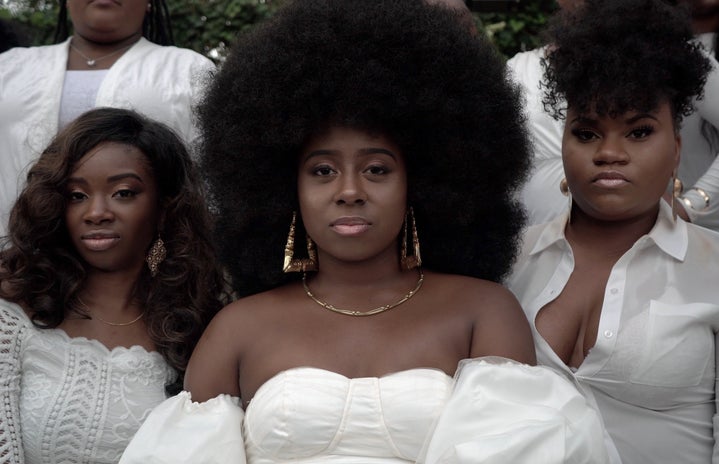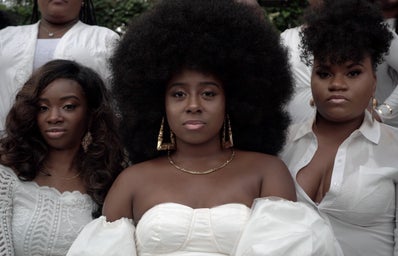When I entered middle school in 2012, I was obsessed with everything that had to do with the ’90s, especially the TV shows. I would stay up all night watching The Jamie Foxx Show and Martin reruns on MTV2 or wake up early in the morning to watch The Fresh Prince of Bel-Air on TBS. Now that I am older, I realize I had this obsession because, in these shows, I got to see myself. Something that was missing in 2012, and is still missing from TV, was the representation of dark-skinned women. Racially ambiguous and mixed women have become the standard, and Hollywood has said, without actually saying, that was enough representation for all Black women.
In the ’70s, when Black sitcoms became popular, so many dark-skinned actresses were able to shine. This would be the case up until the early 2000s. For so long, there was so much representation of Black women of all shades on television, which allowed many young Black girls to see themselves on TV.
In the 2000s, when black sitcoms started to die out, Black women had to begin seeking roles in white TV shows again. When watching TV now, it seems as though Hollywood has brought back the paper bag test. It is no longer common to see dark-skinned women on your television screen. The women we see on TV are usually mixed or light-skinned, and that’s all Hollywood gives to Black women as representation when we are so much more than that. This perpetuates the belief that light skin is better, and it takes away the opportunity for so many dark-skinned women and girls to see themselves in a way that makes them believe they can do anything.
As a dark-skinned black woman seeing mostly light-skinned and mixed women get these opportunities is quite discouraging, and sometimes it makes it seem as though I cannot follow my dreams because I’m too dark. As a young girl, when I immersed myself in Black 90’s television, it made me feel like I could be anything. Seeing Nia Long, Brandy, Tichina Arnold, and so many other amazing actresses be powerful and play strong characters made me proud of my skin tone.
When I think of current Black sitcoms, the only one I can think of that truly has representation is Insecure, and it is not easily available to watch because not everyone has or can afford HBO. Even on Netflix, there aren’t enough television shows that have dark-skinned women with a lead role. In shows like Chewing Gum and She’s Gotta Have it that had dark-skinned leads, the shows were both canceled prematurely. I am sure people are going to say, well, we have Viola Davis or Lupita N’yongo. That is simply still not enough.
You may be wondering, “Why does it matter?” It matters because dark-skinned girls need to grow up seeing themselves on television and in the spotlight. Only showcasing Black women with lighter skin tones will cause dark-skinned little girls to feel inferior or like they can’t be anything they want to be.
ALL Black women need to be represented on television, and we shouldn’t have to beg for it!


